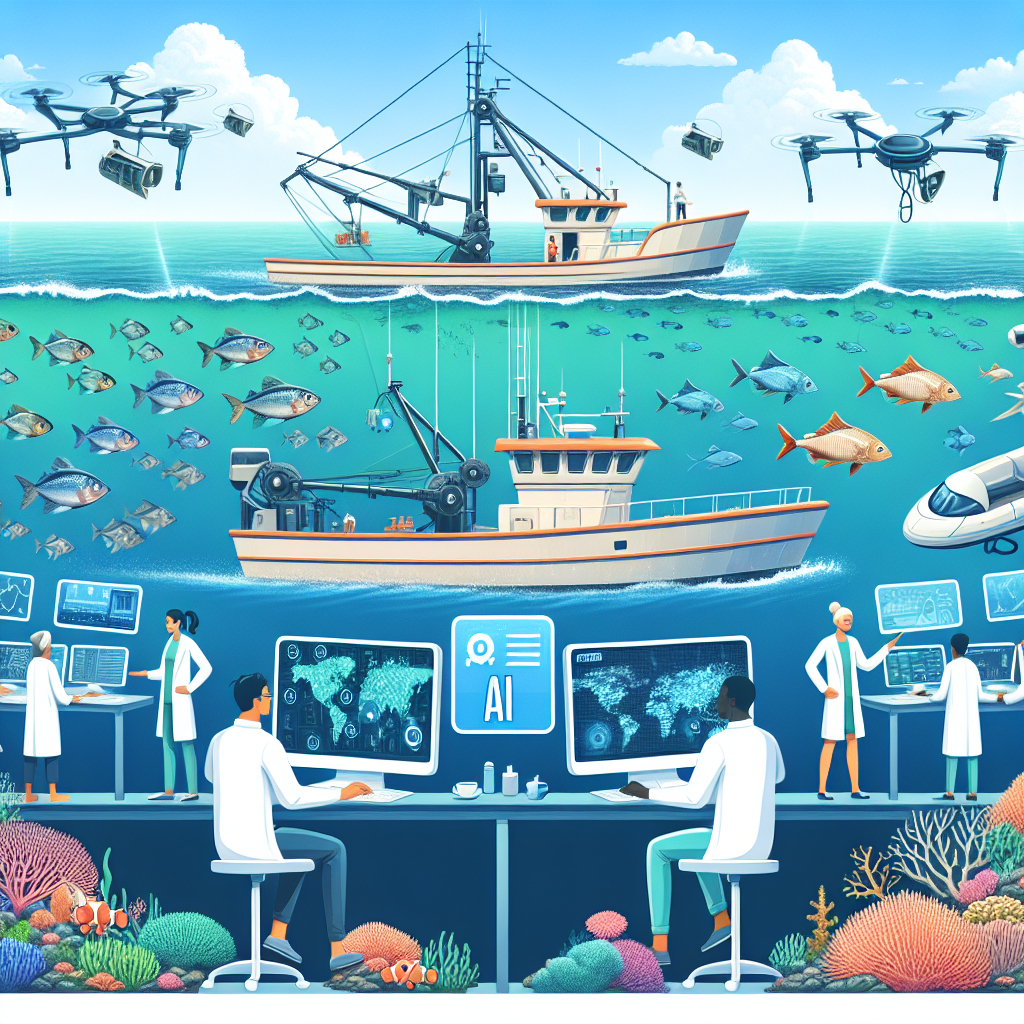In recent years, the fishing industry has faced numerous challenges, including overfishing, bycatch, and illegal fishing. These issues have led to declining fish populations, ecological imbalances, and economic instability for fishing communities around the world. However, with the advancement of technology, particularly artificial intelligence (AI), there is hope for sustainable fisheries management.
AI has the potential to revolutionize the way we manage fisheries by providing valuable insights and data-driven solutions to improve decision-making processes. From monitoring fish populations to preventing illegal fishing activities, AI can play a crucial role in ensuring the long-term sustainability of our oceans.
One of the key benefits of leveraging AI for fisheries management is its ability to collect and analyze vast amounts of data in real-time. This includes data on fish populations, environmental conditions, fishing activities, and more. By using AI algorithms, scientists and policymakers can gain a deeper understanding of the complex interactions within marine ecosystems and make informed decisions to protect and sustainably manage fisheries.
For example, AI-powered tools can be used to monitor fish populations and track their movements in real-time. By analyzing satellite imagery and acoustic data, AI algorithms can detect changes in fish populations, identify spawning grounds, and predict migration patterns. This information can help fisheries managers to set catch limits, establish protected areas, and implement sustainable fishing practices to prevent overfishing and ensure the long-term health of fish stocks.
Furthermore, AI can also be used to monitor fishing activities and detect illegal, unreported, and unregulated (IUU) fishing practices. By analyzing data from satellite tracking systems, AIS signals, and vessel monitoring systems, AI algorithms can identify suspicious behavior, such as fishing in restricted areas or using banned fishing gear. This information can be used to enforce regulations, combat illegal fishing activities, and protect vulnerable marine species from harm.
In addition to monitoring fish populations and fishing activities, AI can also help optimize fisheries management practices. By using predictive analytics and machine learning algorithms, AI can generate accurate forecasts of fish stocks, market demand, and environmental conditions. This information can be used to optimize fishing quotas, improve supply chain management, and reduce waste in the fishing industry.
Overall, leveraging AI for sustainable fisheries management can lead to more efficient, effective, and environmentally-friendly practices. By harnessing the power of AI technologies, we can ensure the long-term health and productivity of our oceans, protect marine biodiversity, and support the livelihoods of fishing communities around the world.
FAQs:
1. How can AI help prevent overfishing?
AI can help prevent overfishing by monitoring fish populations in real-time, analyzing data on fishing activities, and predicting future trends. By using AI algorithms, fisheries managers can set sustainable catch limits, establish protected areas, and implement measures to prevent overfishing.
2. What is the role of AI in combating illegal fishing activities?
AI can play a crucial role in combating illegal fishing activities by monitoring fishing vessels, analyzing satellite imagery, and detecting suspicious behavior. By using AI-powered tools, authorities can identify illegal fishing practices, enforce regulations, and protect marine ecosystems from harm.
3. How can AI optimize fisheries management practices?
AI can optimize fisheries management practices by using predictive analytics and machine learning algorithms to generate accurate forecasts of fish stocks, market demand, and environmental conditions. This information can help fisheries managers to make informed decisions, improve supply chain management, and reduce waste in the fishing industry.
4. What are the potential benefits of leveraging AI for sustainable fisheries management?
The potential benefits of leveraging AI for sustainable fisheries management include improved decision-making processes, better data analysis, and more efficient practices. By using AI technologies, we can ensure the long-term health and productivity of our oceans, protect marine biodiversity, and support the livelihoods of fishing communities around the world.

